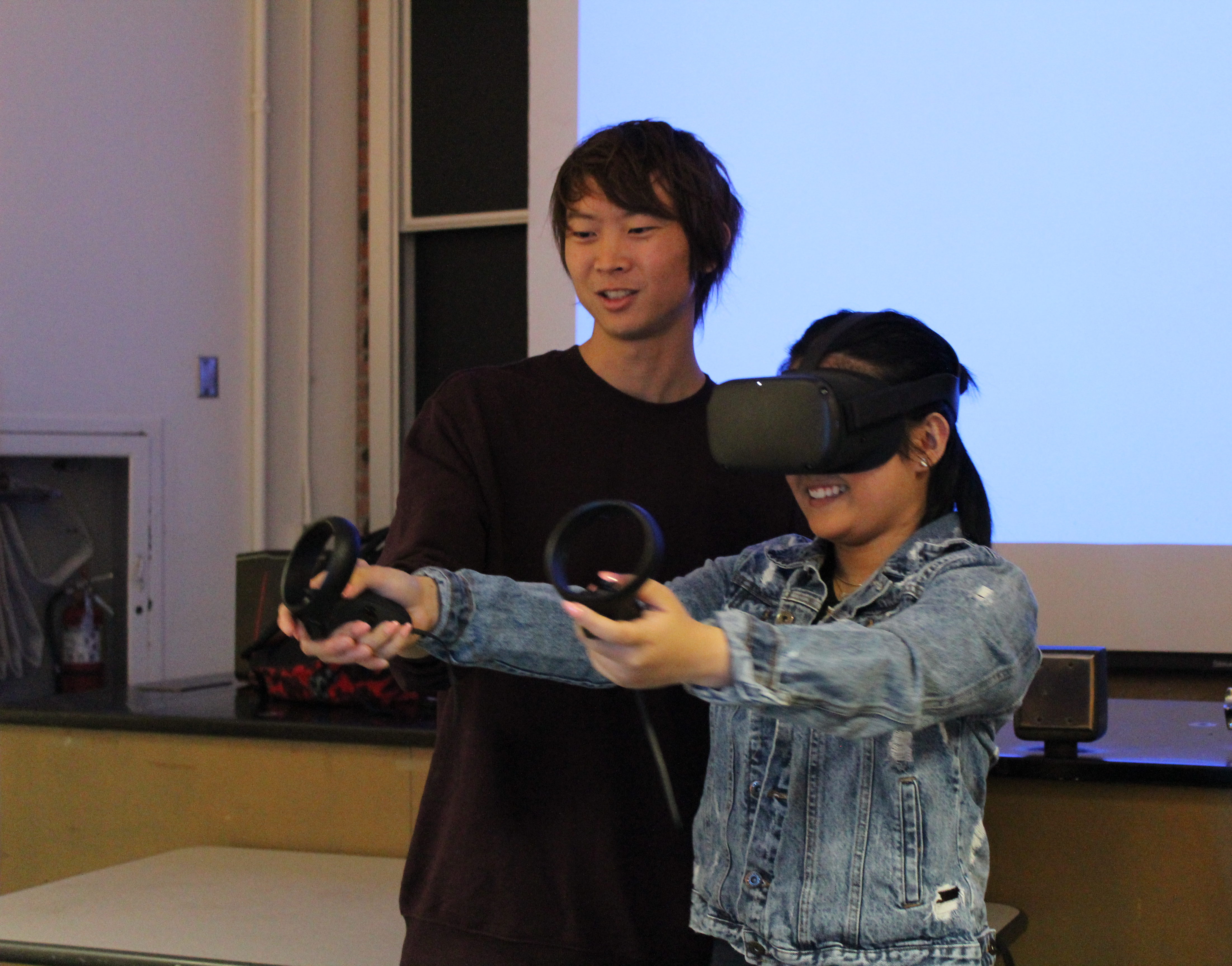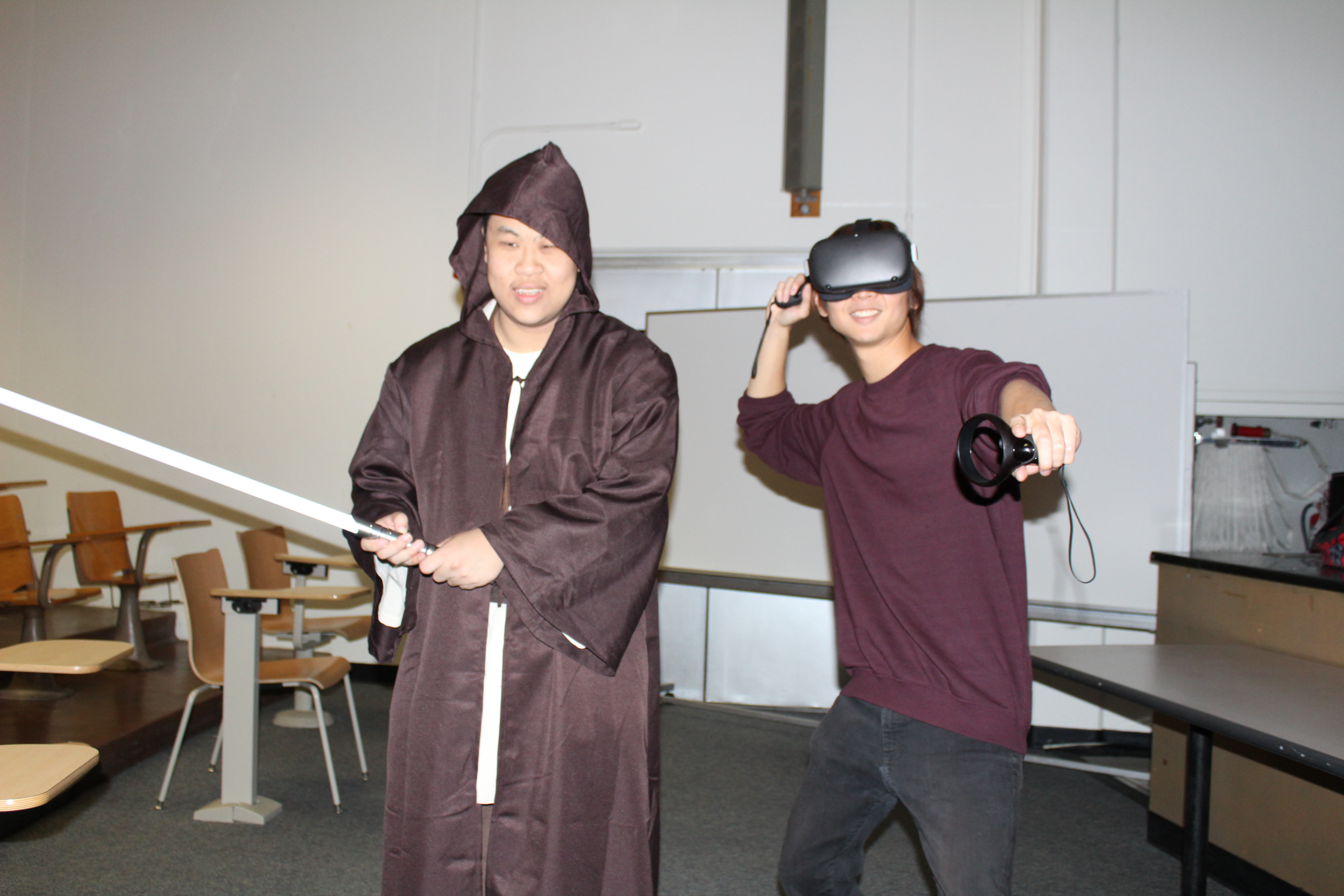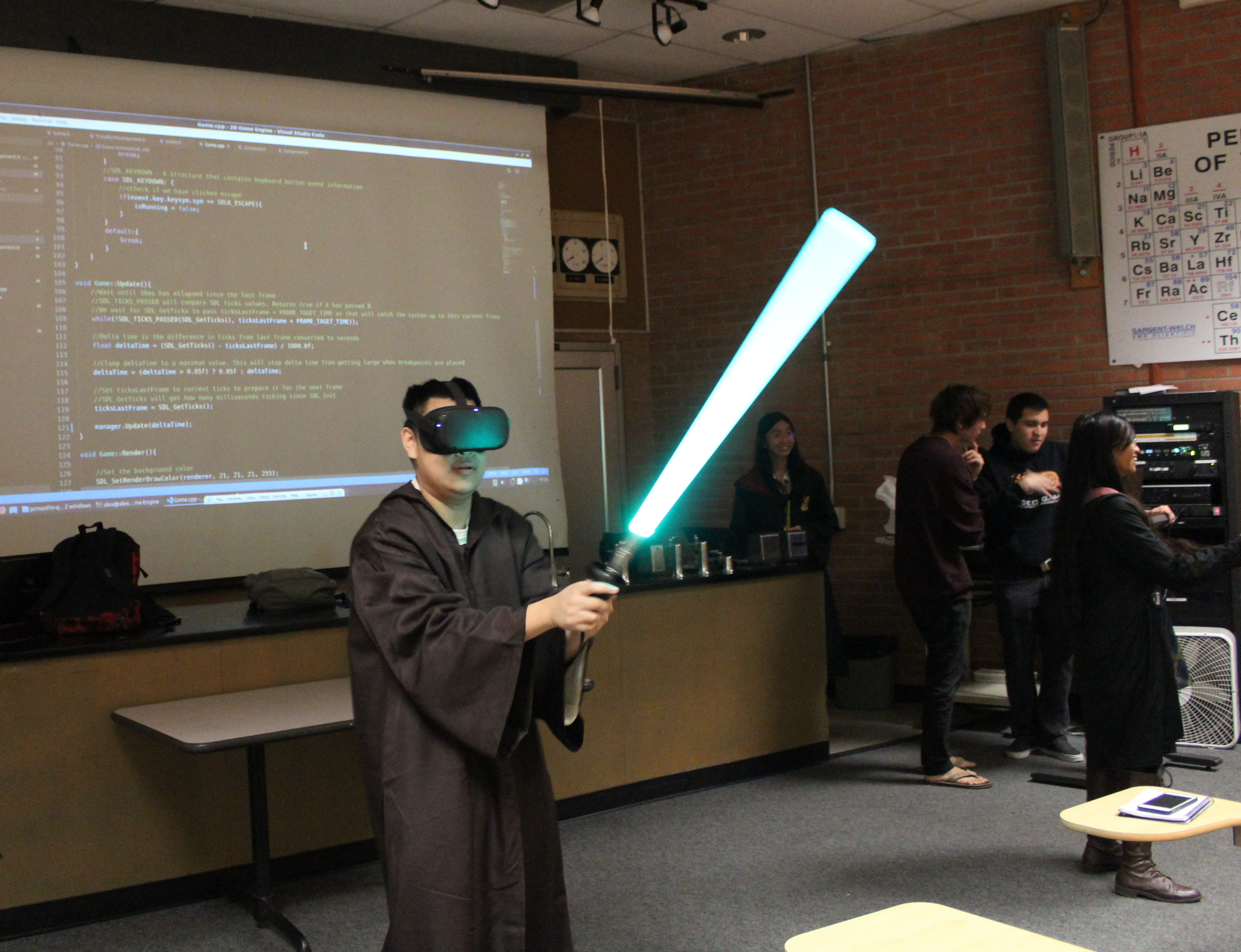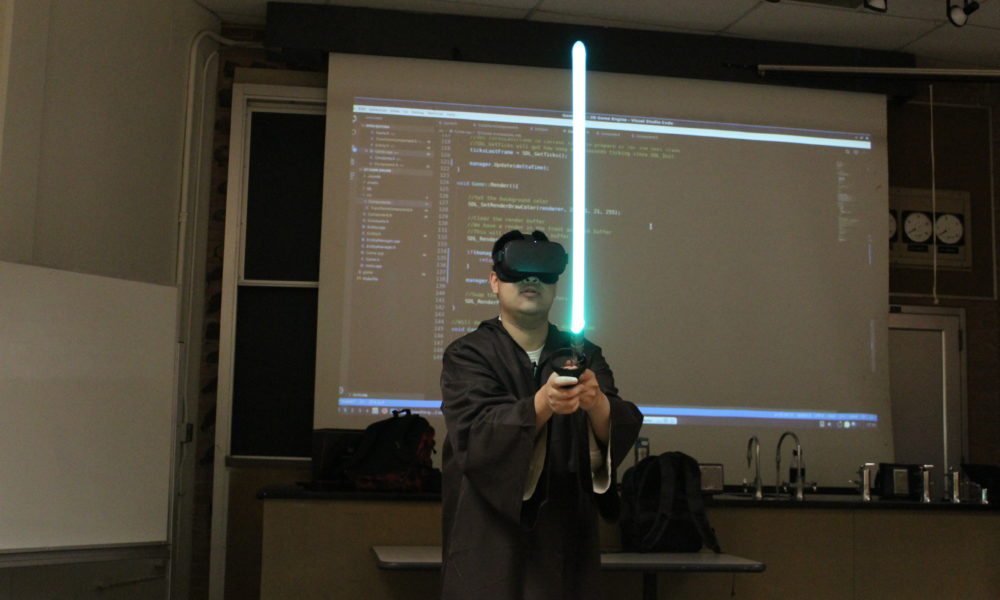Members of Long Beach State’s Video Game Development Association gain experience developing games by creating their own.
VGDA is a combination of students from a variety of majors with different gaming development skills. The group relies on programmers, character artists, game designers and sound designers to create content.
Enlarge

Anna Karkalik / Daily Forty-Niner
“The biggest key to learning game development is just to keep working on projects,” said club President Alex Pinedo, a fourth-year computer science major. “When you have a project that you are really into and you don’t want to let go, you never quit it and you learn less because you are focused on one type of game.”
The cross-disciplinary skills gained from VGDA set up students for the real world gaming development field by ensuring students have worked on a variety of games throughout multiple semesters.
In previous years, the entire club of around 100 students would collectively design one game, but it proved difficult to manage the large number of contributors.
Vice President Jessica Wei, a third-year computer science major, encouraged students who may have an interest in video games, but are unaware of how they are created, to consider joining the club.
“Come in and we’ll help you,” Wei said.
To ensure all members gained hands-on experience during the video game production process, members are divided into smaller groups.
Enlarge

Anna Karkalik / Daily Forty-Niner
The quality of work being completed compared to how many people work on a single game is a challenge.
“You are contributing much more and this becomes a bigger portfolio piece because you are able to talk a lot more about your involvement,” Pinedo said. “The quality of work has also improved as well.”
These smaller groups of four to six people now allow the club to create more than 10 games a semester, with a variety of creative game concepts ranging in difficulty levels.
“We came to find that it’s much easier for a smaller team of five to six people to communicate with each other,” Pinedo said.
Sam Arpon, a fourth-year marketing major, has been in the club for five semesters and said she is now inspired to use her marketing skills in the gaming industry. She has also found interest in designing, character creation, narrative stories and coding.
Enlarge

Anna Karkalik / Daily Forty-Niner
“With smaller groups, it’s easier to control and easier to make a product in which everybody gets a say in it and everybody gets their fair share of input,” Arpon said. “It’s hard to get the input of 100 plus people and be able to make something that everybody is happy with.”
Arpon’s new group project is a rock dating simulator in which the player attempts to date fictional characters that also happen to be rocks. The game is meant to be lighthearted in nature compared to other games the club has produced.
Fourth-year physics major Paul Leelaviwatana and his group have taken roughly around 10 weeks to produce their virtual reality Experience Center, which uses vibration stimulators to and immerse the player into the virtual world.
“I want this to be the platform for music videos,” Leelaviwatana said. “Using VR, any artist can design the world and an audio person can put their track in. You won’t be limited to a rectangle.”
The VGDA club will be hosting a launch party featuring video game demos made by the groups for all other members to provide feedback Nov. 22.




